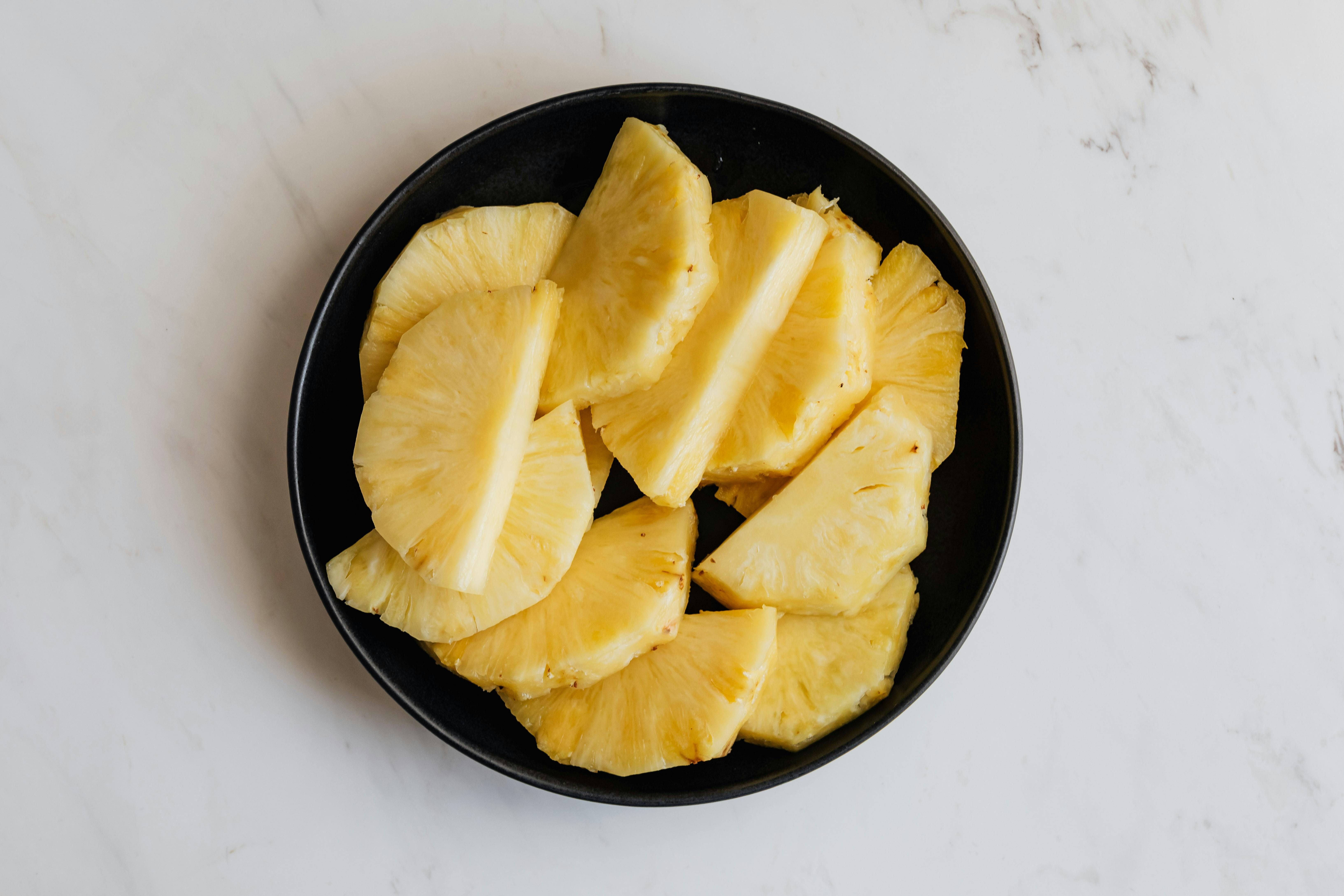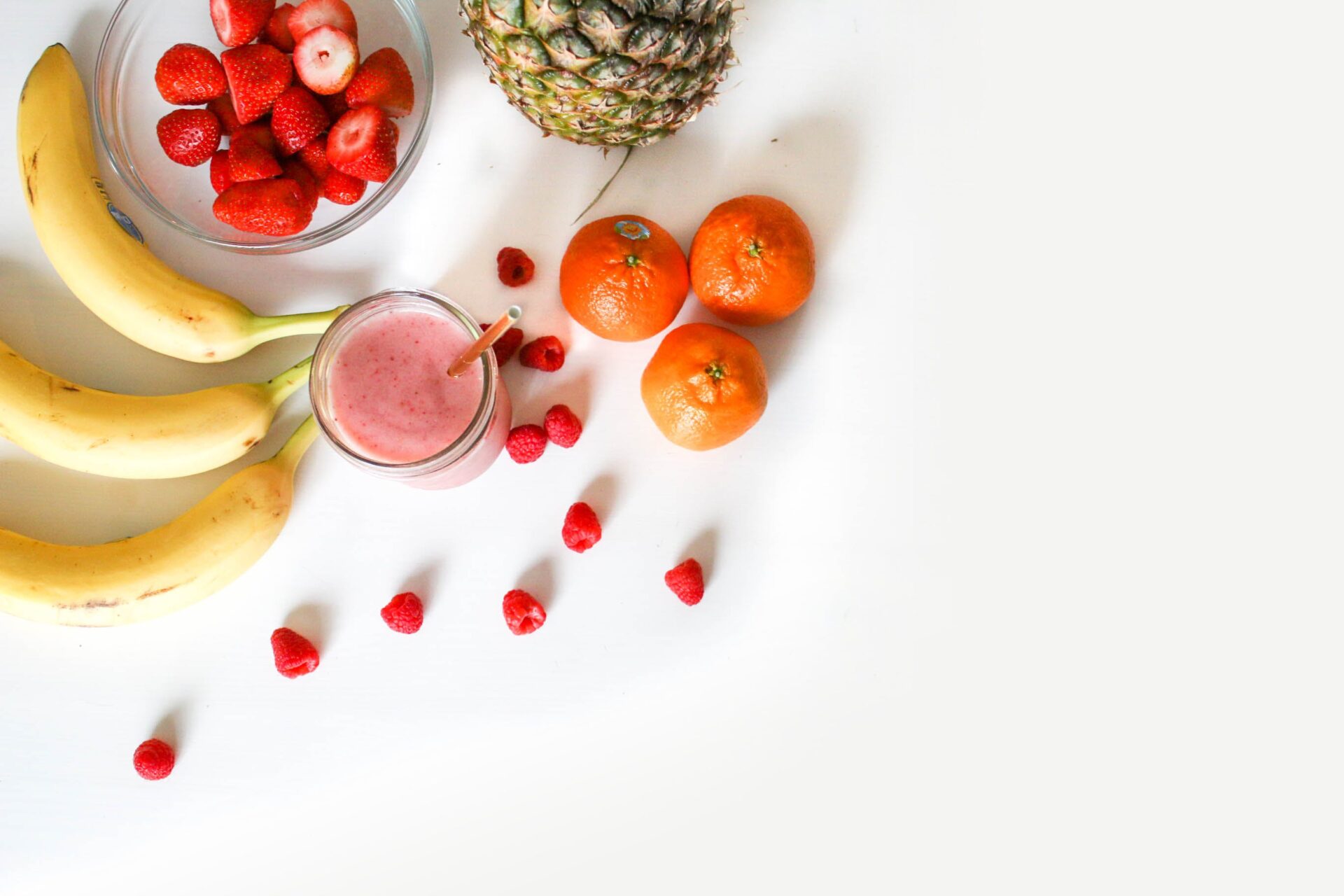Pineapple juice has been thought to have a number of health benefits, including aiding in the reduction of swelling. Studies have shown that pineapple juice contains bromelain, an enzyme with anti-inflammatory properties, which may help reduce swelling and inflammation. In this article, we will explore the potential benefits of pineapple juice for reducing swelling and inflammation. We will look at the research evidence and discuss how to use pineapple juice for best effect.Yes, pineapple juice can help reduce swelling. Pineapple contains bromelain, a natural enzyme that acts as an anti-inflammatory and helps reduce swelling. Drinking pineapple juice regularly can help reduce swelling in the body and joints caused by inflammation. Additionally, pineapple juice is rich in vitamin C, which has antioxidant properties that can help reduce inflammation and ease the discomfort caused by swollen areas of the body.
The Benefits of Pineapple Juice for Swelling
Pineapple juice is a great source of vitamins and minerals and can be beneficial for reducing swelling due to inflammation. The anti-inflammatory properties of pineapple juice are due to its high levels of vitamin C, manganese, and other antioxidants. It also contains enzymes that help reduce inflammation and swelling in the body. Pineapple juice can be used to treat swelling caused by arthritis, injuries, or other health conditions.
The antioxidants in pineapple juice have been found to reduce inflammation caused by free radicals, which can lead to swelling. Vitamin C helps reduce inflammation and helps the body produce collagen, which is important for maintaining healthy skin. Manganese is an essential mineral that has been found to help reduce inflammation in joints and muscles.
Pineapple juice contains an enzyme called bromelain that has powerful anti-inflammatory properties. Bromelain helps break down proteins in the body which can help reduce swelling caused by injury or disease. It also helps improve circulation and can help reduce pain associated with swollen joints or muscles.
In addition to its anti-inflammatory properties, pineapple juice may also help boost the immune system by providing essential vitamins and minerals such as vitamin C and manganese. Drinking pineapple juice may also provide hydration which can be beneficial for reducing swelling due to dehydration.
Drinking pineapple juice regularly may provide many health benefits including reducing inflammation and swelling associated with various conditions such as arthritis or injury. To get the most benefit from drinking pineapple juice, it should be consumed fresh as processed juices may not contain all the beneficial nutrients found in fresh pineapple juice.
What is Swelling?
Swelling, or edema, is an abnormal accumulation of fluid in the body. It can occur in any part of the body, but is most often seen in the feet and ankles. Swelling can be caused by a variety of medical conditions, including arthritis, kidney disease, infection, and heart failure. Swelling can also be caused by injury or trauma to the area. In some cases, the swelling is temporary and will resolve on its own with rest and elevation. In other cases, swelling may require medical treatment to reduce or eliminate it.
What Causes Swelling?
Swelling can be caused by many different factors. The most common causes are injury or trauma to the area (such as a sprain or strain), chronic conditions such as arthritis or kidney disease, infection, and heart failure. Allergic reactions can also cause swelling in certain areas of the body. Other causes include poor circulation, certain medications, air travel (which can cause fluid retention), and even pregnancy (due to increased pressure on blood vessels). Depending on the cause of the swelling, treatment may involve rest and elevation of the affected area; medications such as diuretics; lifestyle changes such as diet and exercise; or surgery in some cases.
Pineapple Juice and Swelling
Pineapple juice is a popular natural remedy for swelling because it contains the enzyme bromelain. Bromelain helps reduce inflammation in the body, which can help relieve swelling. It also has anti-inflammatory properties that can help reduce pain associated with swelling. Pineapple juice is also high in antioxidants, which can help protect against cellular damage caused by free radicals. Drinking pineapple juice can also help improve circulation, which can help reduce swelling. Additionally, pineapple juice contains potassium, which helps to regulate fluid levels and prevent fluid retention that can lead to swelling. Drinking pineapple juice regularly may help reduce swelling and inflammation in the body.
Furthermore, pineapple juice is a great source of Vitamin C, which helps support the immune system and boost collagen production. Collagen is essential for skin health and helps maintain skin elasticity and reduces wrinkles. Vitamin C also helps fight off infection, reducing inflammation caused by bacterial or viral infections. Drinking pineapple juice regularly may help improve overall health and reduce swelling due to its anti-inflammatory effects.
It’s important to note that drinking too much pineapple juice can lead to an upset stomach or diarrhea due to its high acidity content. It’s best to drink it in moderation or diluted with water or other juices for best results. Additionally, if you are taking any medication it’s important to consult your doctor before adding pineapple juice into your diet as it may interfere with certain medications. In general however, drinking pineapple juice regularly may be beneficial in reducing swelling and inflammation in the body due to its anti-inflammatory properties and nutrient content.
Nutrients in Pineapple Juice that May Help with Swelling
Pineapple juice is a popular beverage that is known for its many health benefits. It is rich in vitamins and minerals, and it also contains several compounds that can help reduce swelling and inflammation. The most important of these compounds are bromelain, vitamin C, potassium, magnesium, and copper.
Bromelain is an enzyme found in pineapple juice that has anti-inflammatory properties. It has been shown to reduce swelling and pain associated with arthritis and other inflammatory conditions. Vitamin C helps to boost the immune system and protect cells from damage caused by free radicals. Potassium helps to reduce the amount of water retention in the body, while magnesium helps to relax muscles and reduce cramping. Copper helps to maintain healthy blood vessels and reduce inflammation.
These nutrients work together to provide a powerful anti-inflammatory effect that can help reduce swelling. Pineapple juice can be consumed as part of a well-balanced diet or as an occasional treat for those looking to boost their intake of essential vitamins and minerals while also helping to reduce swelling. Additionally, pineapple juice can be used topically as a compress or poultice on affected areas for additional relief from inflammation.
In conclusion, pineapple juice is an excellent source of several nutrients that can help with swelling and inflammation. Its anti-inflammatory properties are due to the presence of bromelain, vitamin C, potassium, magnesium, and copper which all work together to create a powerful effect that can help soothe sore joints or muscles as well as reducing water retention in the body.

Using Pineapple Juice to Reduce Swelling
Pineapple juice is a natural remedy for reducing swelling in the body. It contains an enzyme called bromelain which helps to reduce inflammation and swelling. Bromelain has been known to reduce swelling in areas such as the knees, ankles, and feet. The juice also contains natural antioxidants which help to reduce oxidative stress caused by free radicals in the body. Additionally, pineapple juice can help improve circulation which can help reduce inflammation and swelling.
To use pineapple juice for reducing swelling, it is best to drink a glass of pineapple juice every day. The juice should be freshly-squeezed and not from concentrate for maximum benefits. You can also add some honey or other sweetener for taste if desired. Additionally, you can apply pineapple juice directly to the affected area using a cotton ball or gauze pad. Leave the juice on the area for 15-20 minutes before rinsing with warm water. This should be done two or three times a day for best results.
It is important to note that while pineapple juice may help reduce inflammation and swelling, it should not be used as a substitute for medical treatment. If you are experiencing any pain or discomfort due to swelling, consult your doctor before attempting any home remedies such as this one. Additionally, people who are allergic to pineapples should avoid using this remedy as it could cause an allergic reaction or worsen existing symptoms.
Is Pineapple Juice Safe to Consume for Swelling?
Yes, pineapple juice is safe to consume for swelling. Pineapple juice contains natural enzymes that help reduce inflammation in the body and can help reduce swelling. The anti-inflammatory properties of pineapple juice can be beneficial in reducing swelling caused by injuries, bruises, arthritis, and other conditions. Additionally, pineapple juice is rich in vitamin C, which helps boost the immune system and fight off infection. It also contains potassium and other essential minerals that can help reduce inflammation.
Pineapple juice also has antioxidant properties that can help reduce free radical damage to cells and tissues in the body. This can help protect against further damage from inflammation and speed up healing time. Furthermore, pineapple juice is naturally low in calories and sugar, making it an excellent option for those looking to manage their weight or improve their health overall.
When consumed as part of a healthy diet, pineapple juice can provide numerous health benefits for people with swelling. However, it should not be used as a substitute for medical treatment or prescribed medications. If you are experiencing severe swelling or persistent pain related to your condition, it’s important to speak with your doctor before trying any home remedies or making any lifestyle changes.
Possible Side Effects of Drinking Pineapple Juice for Swelling
Drinking pineapple juice may be beneficial in reducing swelling, but there are potential side effects to consider. Pineapple juice is high in sugar and can be detrimental to people with diabetes or those trying to cut back on sugar. Furthermore, drinking too much pineapple juice can cause gastrointestinal distress such as diarrhea, nausea, or vomiting. Additionally, pineapple juice contains bromelain, which can be an allergen for some individuals and cause reactions such as skin irritation or difficulty breathing. Lastly, it is important to note that drinking excessive amounts of pineapple juice can affect electrolyte balance and increase the risk of dehydration.
Therefore, while drinking pineapple juice for swelling may have its benefits, it is important to be aware of the possible side effects of consuming too much. It is recommended to consult a doctor before incorporating pineapple juice into your diet if you have any underlying medical conditions that may be impacted by its consumption.

Conclusion
Pineapple juice does have anti-inflammatory properties that can help reduce swelling. Drinking pineapple juice regularly can also provide other health benefits, such as improved digestion and heart health. However, more research is needed to determine if pineapple juice is effective in reducing swelling.
It is important to note that pineapple juice may not be suitable for everyone. People with allergies or certain medical conditions may need to avoid drinking it. Additionally, people should talk to their doctor before making any changes to their diet.
Overall, pineapple juice may help reduce swelling in some people but more research needs to be done before any definitive conclusions can be made.
Therefore, if you are considering adding pineapple juice to your diet for its potential anti-inflammatory properties, consult your doctor first and make sure it is suitable for you.



